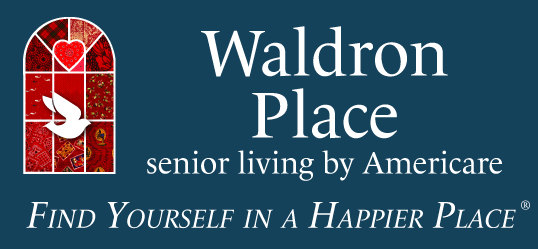Generally speaking, when an individual living at home can no longer be assisted with "scheduled care" (either by family or home health agencies) - and requires more "care on demand", assisted living becomes an attractive option.


FAQs
You’ve got questions. We’ve got answers. See our Frequently Asked Questions below. If you do not see an answer to your question, please contact us and we’ll be happy to help.
This would include assistance that is available 24-hours a day - whenever the resident needs it. Protective oversight, on-going medication management, nutritional support and personal assistance with dressing and bathing are all examples of care on demand.
Many residents live their remaining years quite comfortably in the assisted living setting. Since supportive care is provided (assistance with bathing, medication monitoring, meal preparation), living in an assisted living setting can significantly reduce the risk of serious health setbacks that might necessitate a higher level of care. In addition, Medicare home health services, rehabilitation and even Hospice services can all be accessed in an assisted living community. Certainly meeting a resident's needs is the number one priority and should a higher level of care be required, skilled nursing (both short and long-term) is a viable next step.
Skilled nursing and rehabilitation care is reserved for individuals with often complex medical needs requiring the "skill" of licensed nurses and therapists. Skilled nursing and rehabilitation is appropriate for seniors recovering from stroke or surgery that needs intensive, 7-day a week therapies. In addition, if a resident regularly requires the assistance of another to move from bed to chair, or is confined to bed due to their condition, they are generally more appropriate for the skilled nursing and rehabilitation setting
What is Assisted Living?
An assisted living residence provides a combination of housing, supportive services and health care designed to meet the needs - both scheduled and unscheduled - of those seniors who need help with activities of daily living such as bathing, dressing, meal preparation and medication monitoring (Assisted Living Federation of America). Most states define a resident appropriate for assisted living care as one who can negotiate a pathway to safety in case of emergencies with no or little assistance from another person. These are broad definitions and each state regulates this level of care a bit differently.
What is Memory Care?
Alzheimer's disease is a progressive, degenerative brain disease that impairs memory and the ability to perform the activities of daily living. Over 5 million people suffer from Alzheimer's disease and that number is growing. One out of every eight people 65 years and older are affected, and almost half of those 85 and older have Alzheimer's disease.
That used to be the case. However, more and more states are enabling assisted living communities to specialize in this level of care. More rigorous staffing, physical plant and training standards must be met. Today, however, specialized assisted living communities, like The Arbors, are an attractive option to those seeking care outside the home.
All the services provided in our Arbors communities — from dining, to nursing, to activities — are designed around the unique needs of the memory-impaired. By working closely with loved ones, we preserve the life story of every resident of The Arbors — creating a guide to the past and the present to prevent loneliness, helplessness and boredom. Days are quietly structured to provide a sense of order. Residents are engaged more readily in this setting thru verbal cues and daily routines.
Yes. Not only is the staff-to-resident ratio higher than in a traditional assisted living setting, every employee at The Arbors successfully undergoes training on the Best Friends™ Approach, as well as the person-centered CARES training, developed in partnership with the Alzheimer's Association. The decision to work in this level of care is an important one. We screen prospective caregivers on the front end to ensure they have both the passion and temperament to work with these special individuals.
What's wonderful about Americare's Arbors communities is that the security is there — but not readily apparent to the resident. All doors are equipped with keypad entry/exits. Our outdoor living areas are also secured and are monitored through closed-circuit cameras. Residents who may require additional oversight are given discreet monitoring bracelets.
Research shows that residents with Alzheimer's or other forms of memory impairment do best when they're in a calm, intimate setting and know their caregivers. With no more than 24 units (most with only 14), The Arbors neighborhood allows for flexibility with structure. So each person's daily routine remains, whatever that may be. Our entire building is specifically designed (not just retrofitted) for the memory-impaired resident.
